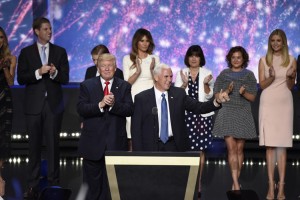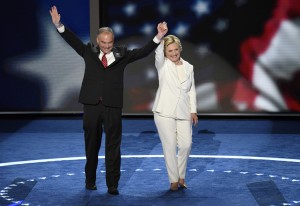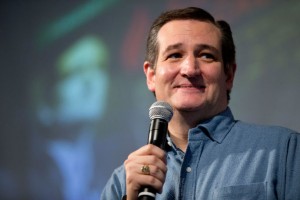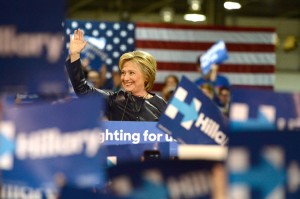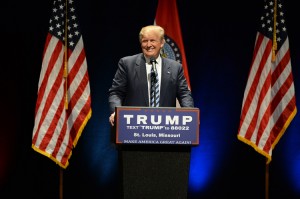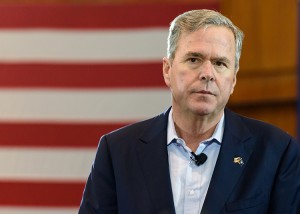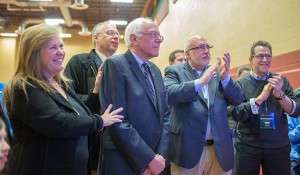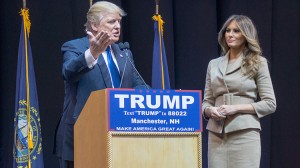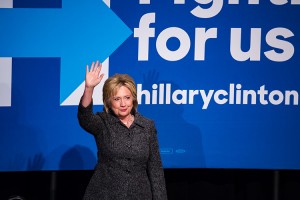America Goes Trump
Wednesday, November 9th, 2016November 9, 2016
In a shocking result, voters in the United States elected Republican businessman Donald Trump to be the nation’s next president. Trump upended Democrat Hillary Rodham Clinton, who had been widely expected to win the election.
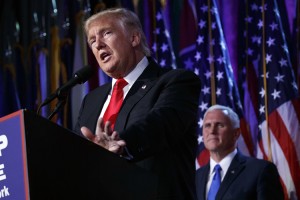
President-elect Donald Trump speaks during an election night rally in New York City on Nov. 8, 2016. Trump and vice president-elect Mike Pence, right, pulled off a surprise victory over Democratic candidate Hillary Rodham Clinton and her running mate, Tim Kaine. Credit: © Evan Vucci, AP Photo
Polls had given Clinton a 90 percent chance of winning the presidency, but Trump claimed narrow victories in each of the so-called swing states (states that do not vote predictably Democratic or Republican) en route to a slim electoral victory. With 270 electoral votes needed to win, Trump claimed 289.
Trump’s surprise win came at the end of a long and bitter campaign that left much of the United States deeply divided politically.
As voting results came in last night, Trump’s path to reaching the 270 electoral vote threshold widened after he captured the closely contested swing states of Florida, North Carolina, and Ohio. The New York City real estate developer and reality television personality proved popular in such regularly “blue” (Democratic) states as Pennsylvania and Wisconsin, increasing the turnout in conservative suburbs and rural areas. Voter turnout was up nearly 5 percent nationwide.
In a small consolation to Clinton, she appeared to win the popular vote after running up large margins on the West Coast. (There were votes still to be counted as of early November 9.) It was the first time since 2000 that a candidate captured the Electoral College while losing the national popular vote. In that election, Republican George W. Bush edged out Democrat Al Gore, who had won the popular vote, after a U.S. Supreme Court ruling ended weeks of contested recounts in Florida.
Clinton had been seeking to succeed popular outgoing President Barack Obama and largely continue his policies. Healthy economic indicators, three strong debate performances, and polls showing a small-but-steady lead appeared to make Clinton poised to become the nation’s first woman president. She had garnered the endorsements of the editorial boards of countless newspapers, and numerous former Republican officeholders supported her over an opponent they called dangerous for what they labeled his ill-considered pronouncements on foreign policy.
The surfacing, late in the campaign, of a 2005 recording of Trump seemingly promoting aggressive sexual behavior toward women also seemed to have discredited his candidacy. But conventional wisdom did not sway the Trump voter. Pollsters suggested that potential voters, aware of the labeling of the Republican as racist and sexist, understated their support of the populist businessman. Political observers failed to gauge the thirst of the electorate to change business-as-usual in Washington, D.C.
In Trump, many saw a champion who would challenge the status quo. His statements about curbing Muslim immigration spoke to some voters’ fears about terrorist threats. Trump’s lambasting of international trade deals gave supporters hope of overcoming the challenges of a global economy that had “left American workers behind.” Furthermore, right-wing news sources popularized the notion that Clinton was an untrustworthy and corrupt—even evil—opportunist who heeded no limits in her pursuit of political power and personal enrichment.
During his speech accepting the Republican nomination, Trump said, “I alone can fix” the nation’s apparent dysfunction. In his victory speech late on election night, he struck a conciliatory tone:
“Now it’s time for America to bind the wounds of division; [we] have to get together. To all Republicans and Democrats and independents across this nation, I say it is time for us to come together as one united people.
“It’s time. I pledge to every citizen of our land that I will be president for all Americans, and this is so important to me. For those who have chosen not to support me in the past, of which there were a few people … I’m reaching out to you for your guidance and your help so that we can work together and unify our great country.”

